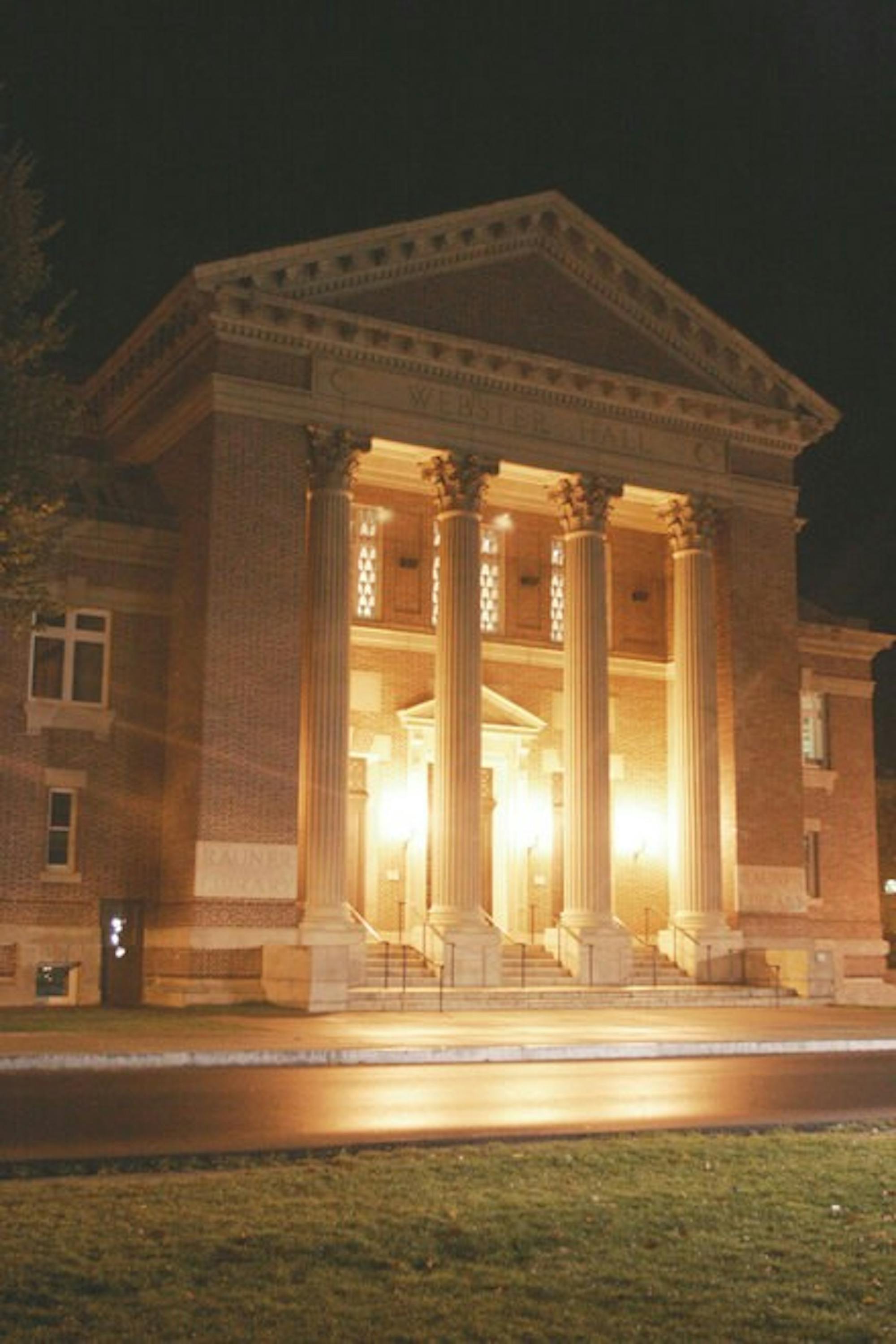Sorting through dozens of boxes containing the remnants of a person's life -- documents, photographs, even cash -- organizing those pieces in a way that is easily accessible to students and researchers may seem like a daunting task. But that is exactly the challenge presented to the staff at Rauner Library when they acquired the papers of the renowned poet Richard Eberhart '26.
Eberhart, a professor of English at Dartmouth for three decades between the 1950s and 1980s, gave his papers the College shortly before his death in 2005.
"It is common for people to give their papers away at the end of their careers," said Jay Satterfield, the Special Collections librarian at Rauner library. "After the person's death, it becomes the family's decision."
Eberhart's papers include 70 boxes of documents, correspondences, notes and photographs.
"Papers get to us in either good order or chaos; in Eberhart's case it's a little of one and a little of the other," said Sarah Hartwell, the reading room supervisor at Rauner.
The staff at Rauner began sorting through Eberhart's documents six years ago. The amount of time it takes to organize and catalog documents varies, Hartwell said.
"It depends on the nature of the writing," she said. "Eberhart wrote to many famous, important people at the time, and his correspondence covers decades."
Eberhart's papers will be most useful to students who research the people he corresponded with, particularly 20th-century poets to whom he served as a mentor, Hartwell said. The Rauner staff will create a meticulously detailed index for his papers to facilitate this process.
Currently there is only one full-time processor working at Rauner, but Hartwell helps to categorize the documents in her spare time.
"There is a huge mountain of documents, and so few pushing through," Hartwell said.
Student employees do most of the rough sorting of the documents, a process that Hartwell said is a personal experience because it entails reading private letters and other similar correspondences.
"Some students reading through his letters even uncovered the fact that he had an affair," she said. "You feel like you get to know him."
While Rauner also possesses collections unrelated to the College -- such as the most comprehensive compilation of pre-1930s Arctic research in the country -- most of the documents given to the library relate to Dartmouth. Eberhart, a Dartmouth alumnus and professor, presumably donated his papers and photographs to the school because much of his life revolved around the institution, Satterfield said.
Eberhart grew up in Minnesota, and much of his poetry reflects his youth spent in a rural setting. After graduating from Dartmouth he had a variety of jobs, including working as a ship hand, before starting graduate study at Harvard University. He also served as a private tutor for the son of the King of Siam in the early 1930s. In 1956, he was appointed the poet-in residence at Dartmouth, where he taught until the mid 1980s. Throughout his life, he received numerous awards, including the 1966 Pulitzer Prize for Poetry and the National Book Award. Eberhart died in Hanover of natural causes in 2005, and the transfer and organization of his papers has been ongoing ever since.




